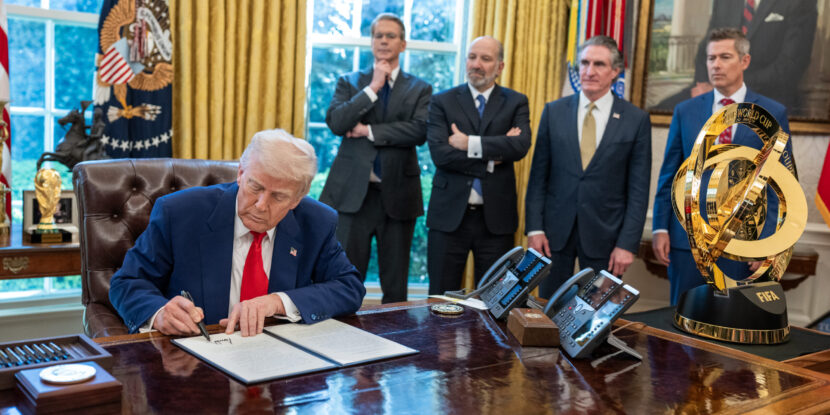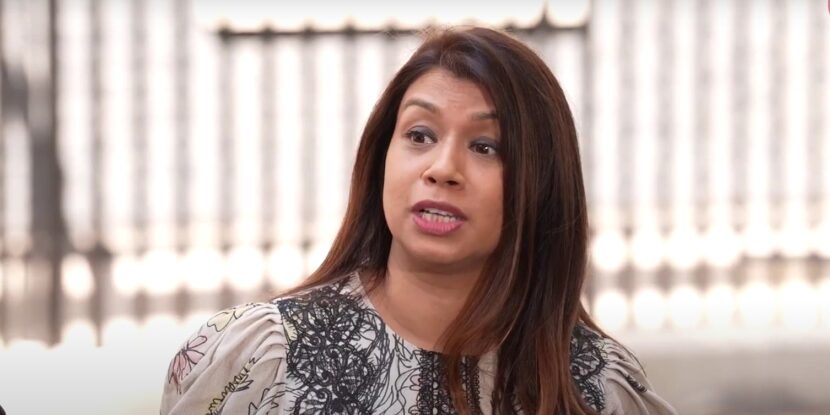
President Donald J. Trump signed an Executive Order aimed at slashing prescription drug costs—with insulin reduced to three cents for low-income Americans.
The details: Trump’s order takes aim at drug costs and Big Pharma from several angles:
Your free, daily feed from The National Pulse.
- Insulin: Prices drop to as low as three cents for low-income and uninsured patients.
- Epinephrine: Injectable doses fall to $15.
- Cancer drugs: Standardizing Medicare payments for prescription drugs, like cancer treatments, which can lower prices by 60 percent.
- Generics: Boosted access to biosimilars, which can be up to 80 percent cheaper.
- Middlemen: Order demands transparency from pharmacy benefit managers and pushes reforms to the entire supply chain.
- Drug importation: States can import lower-cost meds, including for sickle cell.
Back up: In 2020, Trump launched a program to give seniors access to $35 per 30-day supply of insulin. Biden let the program expire and then rolled it into the 2022 Inflation Reduction Act (IRA) and took credit for it.
Eclipsing Biden: The IRA also created the Medicare Drug Pricing Negotiation Program, which allowed Medicare to negotiate drug prices directly with pharma companies for high-cost prescription drugs.
- In its first year in effect under Biden, the program netted a 22 percent reduction in prices. Trump’s order aims to “eclipse” that number.
Big picture: Roughly 68 million Americans are enrolled in Medicare—meaning these reforms will touch roughly 20 percent of the U.S. population.

PULSE POINTS:
❓What Happened: Tulip Siddiq, a Member of Parliament (MP) for Britain’s governing Labour Party, now facing corruption charges in Bangladesh, campaigned to ban President Donald J. Trump from Britain in 2016, and campaigned for Barack Obama in 2008.
👥 Who’s Involved: Tulip Siddiq, President Donald J. Trump, former President Barack Obama, and Bangladesh’s Anti-Corruption Commission.
Your free, daily feed from The National Pulse.
📍 Where & When: British Parliament debate in January 2016; arrest warrant issued in Bangladesh, April 2025.
💬 Key Quote: “The United Kingdom should not be held to ransom by corrosive billionaire politicians,” Siddiq said of Trump in 2016.
⚠️ Impact: Siddiq’s corruption charges undermine her past criticisms of Trump, exposing contradictions in her political stance.
IN FULL:
Tulip Siddiq, a Member of Parliament (MP) for Britain’s governing Labour Party and, until recently, Prime Minister Sir Keir Starmer’s Anti-Corruption Minister, is now wanted in Bangladesh on corruption charges. Raheem Kassam, Editor-in-Chief of The National Pulse, previously covered her efforts to ban President Donald J. Trump from the United Kingdom and her campaign work for Barack Obama in 2008.
In January 2016, Siddiq took a prominent role in a parliamentary push to bar Trump from entering Britain. Speaking to the British press, Siddiq called Trump “corrosive,” dismissing contemporary reports he could pull a proposed £700 million investment in Scotland if he was banned from the country. “The United Kingdom should not be held to ransom by corrosive billionaire politicians,” she stated. “Donald Trump’s threats about withholding investment from the UK is another desperate attempt to get in the headlines, and anyone seeing his comments should reject his bigotry.”
At the time, Trump was under fire for proposing a so-called “Muslim ban” to stem Islamist terror attacks—later manifested as a ban on travel from certain known hotbeds of jihadism with insecure vetting for outbound travelers.
Not coincidentally, Bangladesh—where Siddiq’s now-ousted aunt Sheikh Hasina was Prime Minister—is overwhelmingly Muslim in composition. Siddiq’s corruption charges are linked to allegations she and her family profited from misused public funds in the country during her aunt’s 15-year rule.
In addition to campaigning against Trump traveling to Britain, Siddiq traveled to the U.S. to campaign for Barack Obama during his 2008 U.S. presidential run, according to the ‘British Bangladeshi Who’s Who’ magazine.
She backed the bid by hard-left former Labour leader Jeremy Corbyn—expelled by Starmer amid an anti-Semitism scandal—but maintained a high profile following his ouster, being appointed as Economic Secretary to the Treasury and City Minister, or Anti-Corruption Minister, when Labour regained power last July.
Bangladesh’s Anti-Corruption Commission accuses her of illegally obtaining a 7,200-square-foot plot in Dhaka’s diplomatic zone through abuse of power. The commission alleges she used forged signatures to secure a flat, qualifying her for the land deal, as part of broader investigations into her family’s dealings during Hasina’s government.
In 2016, when I ran Breitbart’s London bureau, we reported extensively on the case of Member of Parliament Tulip Siddiq, who campaigned to have Donald Trump banned from the UK.
No one else would touch it critically.
Fast forward almost a decade, and look who the law is finally… pic.twitter.com/aAVKz1zOWa
— Raheem. (@RaheemKassam) April 14, 2025
;
show less

 2 months ago
2
2 months ago
2








 English (US) ·
English (US) ·